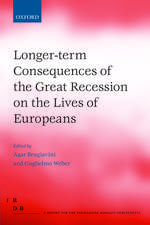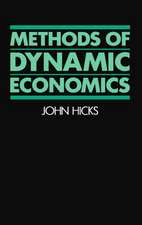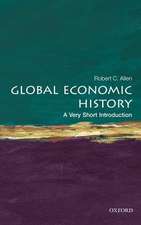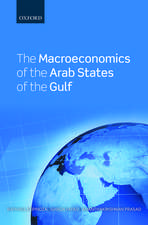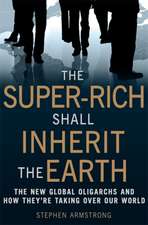Living Standards in the Past: New Perspectives on Well-Being in Asia and Europe
Editat de Robert C. Allen, Tommy Bengtsson, Martin Dribeen Limba Engleză Hardback – 24 mar 2005
Preț: 1467.23 lei
Preț vechi: 2229.63 lei
-34% Nou
Puncte Express: 2201
Preț estimativ în valută:
280.76€ • 300.22$ • 234.09£
280.76€ • 300.22$ • 234.09£
Carte tipărită la comandă
Livrare economică 07-14 aprilie
Preluare comenzi: 021 569.72.76
Specificații
ISBN-13: 9780199280681
ISBN-10: 0199280681
Pagini: 496
Ilustrații: numerous maps, tables and line drawings
Dimensiuni: 164 x 241 x 32 mm
Greutate: 0.89 kg
Editura: OUP OXFORD
Colecția OUP Oxford
Locul publicării:Oxford, United Kingdom
ISBN-10: 0199280681
Pagini: 496
Ilustrații: numerous maps, tables and line drawings
Dimensiuni: 164 x 241 x 32 mm
Greutate: 0.89 kg
Editura: OUP OXFORD
Colecția OUP Oxford
Locul publicării:Oxford, United Kingdom
Recenzii
If you are interested in human welfare, you will enjoy this book. Accessible in style, ranging broadly over space and time, innovative in method,'living standards in the past' brings together works by some of the foremost practitioners in the field.
Notă biografică
Robert Allen is Professor of Economic History at Oxford University and a fellow of Nuffield College. He received his doctorate from Harvard University. He has written extensively on English agricultural history, international competition in the steel industry, the extinction of whales, the global history of wages and prices, and contemporary policies on education. His articles have won the Cole Prize, the Redlich Prize, and the Explorations Prize. His books include Enclosure and the Yeoman: The Agricultural Development of the South Midlands, 1450-1850, which was awarded the Ranki Prize by the Economic History Association, and, most recently, Farm to Factory: A Re-interpretation of the Soviet Industrial Revolution. Professor Allen is a Fellow of the British Academy and the Royal Society of Canada.Tommy Bengtsson, Professor of Demography and Economic History at Lund University, works in both historical and contemporary economic demography. He has served in leading positions in Swedish and international organisations and is currently Chair of the IUSSP Committee on Historical Demography and Series Co-editor of the Eurasian Population and Family History Series.Martin Dribe is Associate Professor of Economic History at Lund University.


